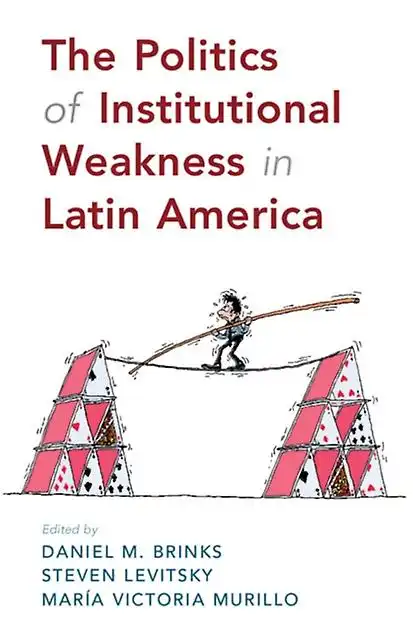Home>The Politics of Institutional Weakness in Latin America with Daniel Brinks, University of Texas at Austin & Candelaria Garay, Harvard
24.01.2022
The Politics of Institutional Weakness in Latin America with Daniel Brinks, University of Texas at Austin & Candelaria Garay, Harvard
About this event
24 January 2022 from 17:00 until 19:00
Round Table of the key Theme: The State as a Producer of Public Policies
The Politics of Institutional Weakness in Latin America (Daniel M. Brinks, Steven Levitsky, María Victoria Murillo, (eds.), Cambridge University Press, 2020)
Sciences Po, via Zoom, Compulsory Registration
Despite being considered as a central problem in comparative politics, institutional weakness is often portrayed as a contextual feature and is seldom studied in itself. In their latest book, Daniel Brinks, Steven Levitsky, María Victoria Murillo and their collaborators seek to address this major crux through the study of weak institutions in Latin America. Indeed, Latin American countries offer a privileged comparative vantage point on the political origins and consequences of weak institutions. After democratization, there have been a plethora of efforts to reform constitutions and electoral systems, to create independent judicial systems or autonomous agencies, to introduce new social policies or to tackle growing problems such as climate change. Yet, the gap between ambitions and outcomes remains as consequential as the region's inequality or incomplete democratization. In disentangling the political origins of institutional weakness, the authors provide us a compelling theory of why institutions fail to do what they were conceived to. As such, the book appears as a major contribution to key contemporaneous debates in political science around enforcement and implementation, State (in)capacity and institutional change. These insights do not only apply to the Latin American region, but also to other parts of the Global South and to industrialized democracies, which might face the same incentives to create and sustain weak institutions. This round-table seeks to open up these comparative avenues between Latin American and European scholars and fieldworks. Daniel Brinks will first present the overall theoretical argument of the book, while Candelaria Garay will present her work on enforcement through the case of forest protection in Argentina. Their presentations will be followed by a Q&A and collective discussion.Speakers
Daniel Brinks, Professor of Government and of Law, Chair of the Government Department at The University of Texas at Austin
Candelaria Garay, Ford Foundation Associate Professor of Democracy at the Kennedy School of Government, Harvard
Collective Discussion
For more information: pablo.cussac@sciencespo.fr and marcela.alonsoferreira@sciencespo.fr

